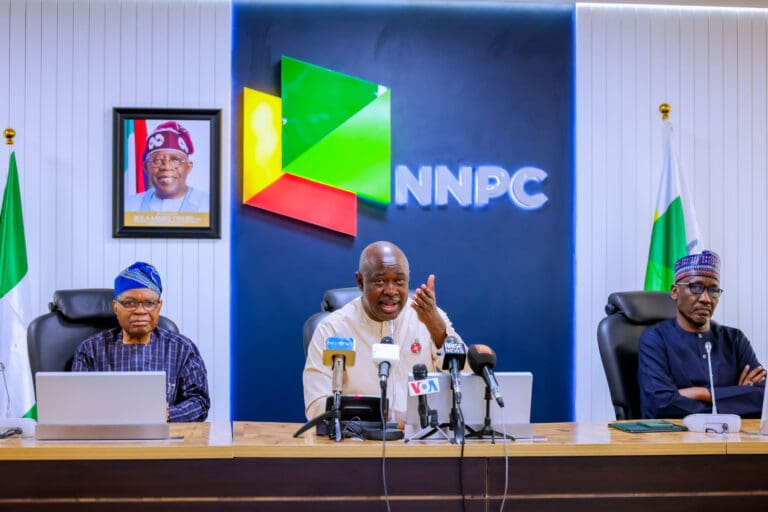Nigeria’s Minister of State for Petroleum Resources (Oil), Mr. Heineken Lokpobiri, says that the Africa Energy Bank will commence operations in Nigeria in March 2025.
Delivering his keynote at the opening of the Sub-Saharan Africa International Petroleum Conference organised by the Petroleum Technology Association of Nigeria om Tuesday in Lagos, the Nigerian minister said that the building hosting the bank was receiving finishing touches in Abuja.
Lokpobiri said that Africa’s major problem is energy poverty and the problem lies with Africans.
“For us in Africa, the Africa Energy Bank is the solution. The African Energy Bank is good to go. This is a bank that will start with about $5bn, contributed between member countries and the Afrexim Bank. The Afrexim Bank has said they are going to, as part of the agreement, cede their oil and gas portfolio to that bank. The projections are that by the next four or five years, this bank will grow and ascend to $120bn. We want people to come and invest in that bank. We want sustainable investments, not promises that they can never be kept.
“And so we are very proud that as part of our commitments to host the African Energy Bank, the building is ready. We are putting the finishing touches to it. It’s a beautiful building, the best you can find in Africa. And our own projections are that this bank will take off by this quarter.
The minister also hailed the pivotal role Nigeria is playing in Africa’s energy sector and remains the continent’s leading oil and gas producer due to deliberate technological advancements and sustained governmental commitment.
Highlighting the remarkable transformation of indigenous oil firms in Nigeria, the minister stated that these companies now rival international oil giants in scale and capacity.
He urged African countries to foster interdependence and collaboration rather than perpetuate outdated models of economic reliance.
The minister warned against excessive outsourcing within the industry, which led the Nigerian government to issue an executive order curbing ‘middlemanism’ in the sector.
According to him, the practice of individuals securing contracts they lack the technical capacity to execute, only to subcontract them to major corporations for a fraction of the value.
This inefficiency, according to him, undermines Africa’s ability to harness its full economic potential and must be addressed through robust policy frameworks.
Assessing Africa’s economic trajectory, the Minister underscored the distinct governance challenges the continent faces. “While other regions expand their investment portfolios, Africa remains disproportionately dependent on external assistance. “Africa does not need helpers; Africa needs investors and partners,” he declared, urging African leaders and entrepreneurs to take charge of their economic destinies by investing in their own energy sectors.
He said that Nigeria’s historical fuel-related challenges should serve as a lesson for the entire continent to proactively devise indigenous solutions rather than wait for external interventions.
Furthermore, he provided a thought-provoking commentary on the nature of political commitments, stating that while promises may be freely made, they often lack enforceability. Unlike contracts, which carry legal obligations, political pledges are seldom upheld with sincerity.
“A promise is not a crime,” he remarked. “You cannot sue someone for failing to honour a mere verbal commitment, nor can you impose sanctions for a failure to act.”
He lamented the absence of genuine intent behind many international commitments made to Africa, stressing that the continent must take ownership of its energy future rather than rely on unreliable pledges.
The minister reiterated the urgent need for sustainable, actionable investments over empty promises and called on African nations to develop robust local content policies, harness Nigeria’s experiences as a guiding framework and strive for continuous improvement in the sector.
GIK/APA


